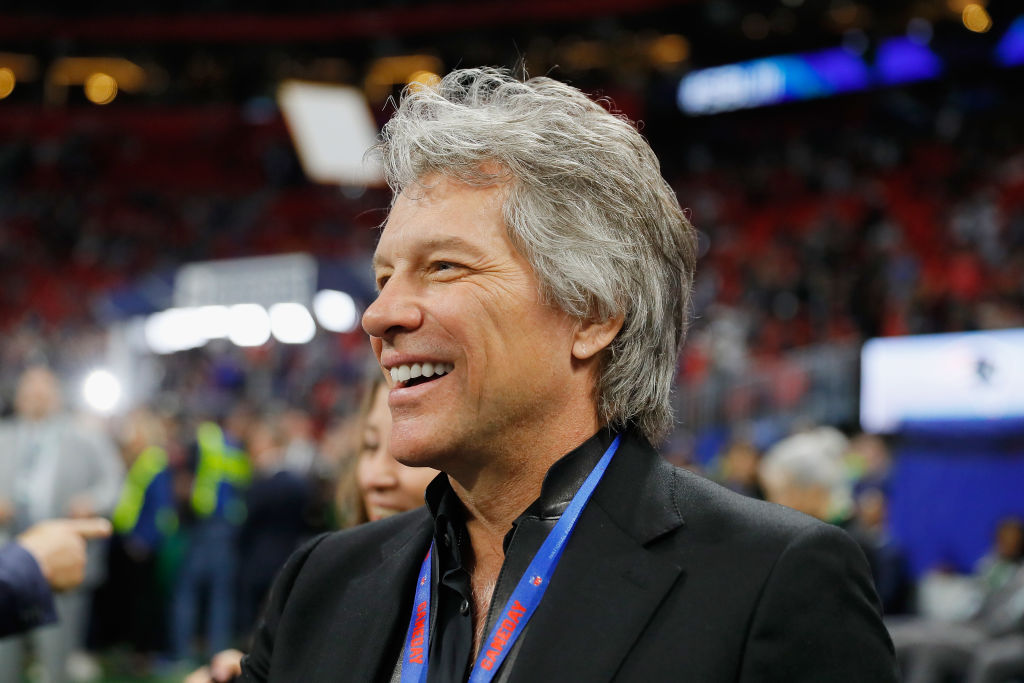NFL
Donald Trump and Jon Bon Jovi Battled for the Buffalo Bills

Developments in the NFL this week have led the Buffalo Bills to believe they can topple the New England Patriots and finish first in the AFC East for the first time since 1995. Trading for Minnesota Vikings wide receiver Stefon Diggs addressed a key weakness at the same time the Patriots have been hit by departures, most notably quarterback Tom Brady.
That should make Bills owners Terry and Kim Pegula happy, but it is also a reminder of how it could have been Jon Bon Jovi or Donald Trump gloating right now over prospects for a Super Bowl run in the 2020 season.
Ralph Wilson’s death put the future of the Buffalo Bills in doubt
The future of the four-time Super Bowl losers became uncertain when owner Ralph Wilson died in March 2014. With no heir being a fit to run the franchise, the Bills were put in trust pending a sale that would fund a charitable foundation focused on the Buffalo and Detroit areas.
With Buffalo being one of the smallest markets in the NFL, few people with local ties could come up with the money to buy the Bills. Speculation abounded that an outsider could post the winning bid. One of the implied concerns was that such a development could result in the team being moved out of Buffalo.
That became less of a concern once Terry and Kim Pegula entered the bidding since both had Western New York roots, but there were still two other hopefuls in the running: Donald Trump and Jon Bon Jovi.
Donald Trump waged a secret campaign to derail Jon Bon Jovi
As recounted by BusinessInsider.com, a pecking order developed by the summer of 2014 as contenders jockeyed to buy the Buffalo Bills. Terry and Kim Pegula, who already owned the NHL’s Buffalo Sabres, were reported to have bid $1.3 billion. Jon Bon Jovi and Canadian magnates Larry Tanenbaum and the Rogers family were somewhere close to $1.2 billion and businessman Donald Trump, still two years from campaigning for president of the United States, had offered $1 billion.
The disparity in money and the objective of funding a charitable foundation with the most cash possible put the Pegulas in the lead, but the bidding was still secretive. That’s where the battle between the two lesser bidders began.
The Bills had played one regular-season game per year in Toronto from 2008-13, stoking fears by fans that the team could be moved to Canada. GQ magazine reported Trump played on that fear by secretly backing a grassroots campaign to turn local sentiment against Bon Jovi and his Canadian investors.
Michael Caputo, a political operative in Western New York, has taken credit for a campaign that included area bars declaring themselves “Bon Jovi-Free Zones” and various boycotts of the rock star’s music.
Were the Pegulas in any real danger of losing out on the Bills?
The ploy worked for Donald Trump. Though Jon Bon Jovi said he was committed to moving to Buffalo and putting his career in music on hold to run the team, questions abounded. NFL owners may not have approved the sale to someone who had been so vilified by the local community.
“It’s genius what he did because he was taking out a serious candidate to buy the team and then hope that he would get it at a bargain price. But we were as real as real got and, you know, I’m brokenhearted because I would have loved it.”
Jon Bon Jovi
Bon Jovi was going to have a tough time taking control of the Buffalo Bills regardless of how the battle with Trump turned out. The musician probably could not have been installed as
The best he might have hoped for was to go in as a minority partner and slowly reach the 30% threshold, but no one else in his consortium was prepared to meet the requirements for a principal owner.
For his part, Donald Trump likely could have put up the required cash but did not have had the resources or the will to get into a bidding war with Terry and Kim Pegula, who made billions in the oil and gas industry.
Once the Pegulas’ bid reached $1.4 billion, they were all but assured of winning ownership of the Bills. They officially took over the franchise in the fall of 2014.











